Newsroom
Category: Research
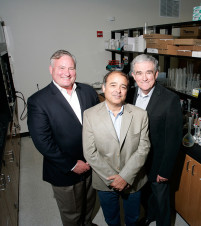
November 30, 2015 • Research
By Jan Jarvis Six years ago in an acceleration lab at UNT Health Science Center, the co-founders of ZS Pharma were developing a drug that they believed held great promise. But even with such lofty expectations, ZS Pharma co-founders Alvaro Guillem and Jeff Keyser may have underestimated their biotech startup’s potential. Earlier this month…
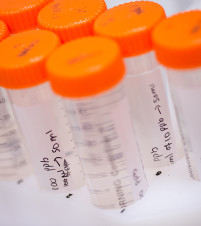
November 10, 2015 • Research
A blood test developed at UNT Health Science Center to detect Alzheimer’s disease will be used in a new study that focuses on individuals with Down syndrome, who are at high risk of developing memory problems. The study is one of four exploring the link between Alzheimer’s disease and Down syndrome that are receiving $250,000…
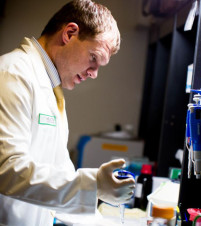
November 9, 2015 • Research
By Jan Jarvis A blood test developed at UNT Health Science Center detects pre-Alzheimer’s disease in asymptomatic Mexican-Americans with 96 percent accuracy. The test used blood samples provided by participants in the Health & Aging Brain among Latino Elders (HABLE) study. Hundreds of older Mexican-American residents from the Fort Worth area have participated in this…

October 9, 2015 • Education, Patient Care, Research
Top goals for 2020 Positioned as the education and research partner for hospitals/health care systems of Tarrant County U.S. leader in interprofessional education and practice Total research awards increased by 30 percent to $55 million New philanthropic gifts grown by $100 million Nationally recognized as a “Great Place to Work” Seven “high-functioning” schools National reputation…
September 21, 2015 • Research, School of Public Health
A UNT Health Science Center project aimed at addressing interpersonal violence has been awarded $2.2 million in funding over the next three years by the U.S. Department of Health and Human Services’ Office on Women’s Health. The project – called TESSA (Technology Enhanced Screening and Supportive Assistance) – is being led by Emily Spence-Almaguer, MSW,…
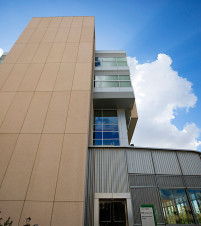
September 1, 2015 • Education, Patient Care, Research
Imagine teams of extraordinary researchers and clinicians from different disciplines working together to create solutions for the biggest health problems facing Texas. Each scientist or physician contributes his or her own unique skills, knowledge and ideas, collaborating in unique ways that create innovation and push the boundaries of discovery. At UNT Health Science Center, that…
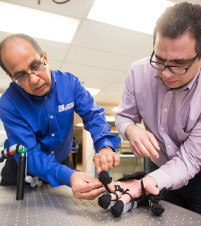
August 25, 2015 • Research, School of Health Professions
Initial rehabilitation therapy for many stroke victims may focus on regaining the ability to walk. But when hands also are affected, therapy focused only on the legs can leave hand muscles contracted, a condition that can be difficult to overcome. A new, soft robotic glove that can open and close a patient’s hand may…
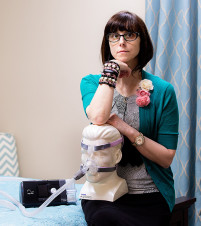
August 17, 2015 • Research, Texas College of Osteopathic Medicine
Masks worn by those with sleep apnea can leak at night and be so uncomfortable that they often drive users away from treatment. But a new system being developed by researchers at UNT Health Science Center and The University of Texas at Arlington could make it easier for the estimated 18 million people with sleep…
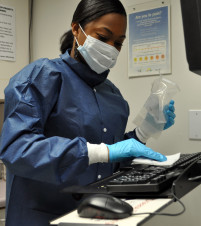
August 12, 2015 • Research, School of Public Health, Texas College of Osteopathic Medicine
A germ that causes fever and nausea can be found at health care facilities on bed rails, computer keyboards and door handles, according to a collaborative project from UNT Health Science Center and the Dallas-Fort Worth Hospital Council Foundation. The study recommends more vigorous cleaning and infection control measures in health care facilities, and awareness…
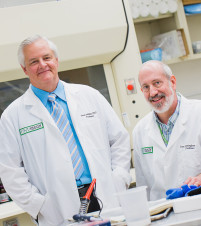
August 10, 2015 • Research, School of Biomedical Sciences
When people with sleep apnea stop breathing at night, it’s no surprise that their blood pressure goes up. But what’s less well known is that it stays that way, long after one’s breathing returns to normal. Researchers at UNT Health Science Center want to figure out why and hope that discovery will lead to better…

Social media